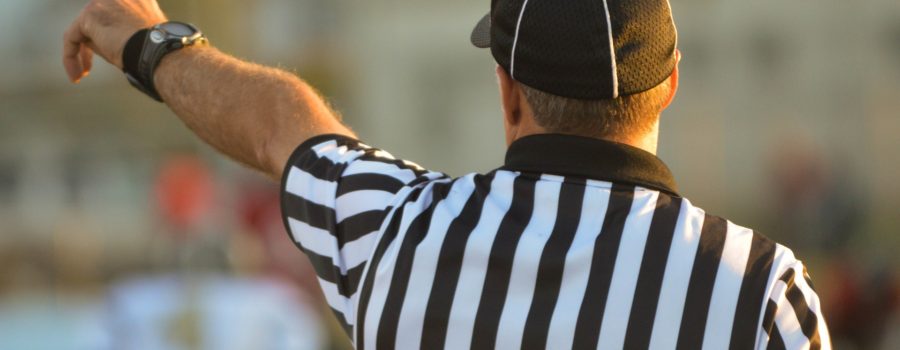As thesis deadlines and defence dates loom, the last thing you’re probably thinking about is copyright. But it matters. My decision to provide an alternative form of copyright on my thesis created some challenges, and I’d hate for other people to deal with the same hassle.
Your thesis is yours in many ways, but one of the most substantial of these is that you own the copyright. This makes sense; after all, years of work will be buttoned by the release of an artifact (the thesis) that embodies your original thinking in your field. In many other environments—such as under someone else’s employment—your intellectual output may be owned by your employer, but in the academy you generally get to keep the rights to what you create.
The fact that you typically must finish up with a formatted, standardized, archival PDF, monograph-style version of your thesis, regardless of the form your scholarship takes, vexes me for many reasons (what if you want your scholarship to centre on something that isn’t written in a traditional way?), but one of the most significant of these is the deeply-buried and quietly-enforced insistence that you put a copyright notice on your final document—usually right on the front.
The open option
My Master’s degree thesis is in a traditional format, but it focuses heavily on the value of open information. As a result, I decided almost a year ago that I wanted to release my thesis under a Creative Commons licence. You see, as a copyright holder I have the exclusive right to restrict or authorize a wide range of uses of my work. A typical copyright notice reminds people of that fact but doesn’t make it easy for anyone to get permission from me to reuse the work. A Creative Commons licence is a convenient way to say “yes, this work is mine and I have copyright. I want you to know that you are free to share it or adapt it or rework it without asking me first, as long as you give me credit and don’t trade it for lucre.” Regardless of the default/easy path your university wants you to use, we all have these rights as the copyright holders of our theses (with room for caveats in cases where our work is co-authored, integrates other works, has components that are previously published, or contains information that cannot be shared for ethical or cultural reasons).
Paperwork
Passing my thesis defence didn’t get me the degree; as part of other degree requirements, I had to formally “deposit” my thesis with the university. There were forms to fill out and steps to follow, and my excitement at finishing encouraged me to Get It Done so I could Get Outta Here. One form asked me to give the university library and Library and Archives Canada a non-exclusive licence to “archive, preserve, produce, reproduce, publish, communicate, convert into any format, and to make available my Thesis in print or online by telecommunication to the public for educational, research and non-commercial purposes.” Another key component was a “title page template” that included a copyright notice.
Faced with a choice between “Copyright Kris Joseph, 2019” and “This work is licensed under a Creative Commons licence,” I opted for the latter. One statement says “this is mine and you can’t use it;” the other says “this is mine but I want you to use it. Just gimme credit, ok?” The distinction is important, and making it visible on the front of the thesis, so my intentions are clearly visible, is also important.
My logic is as follows:
- I have received scholarship funding from a government source, which means that the public has helped pay for my schooling
- Even if I hadn’t gotten scholarships, I acknowledge that my tuition does not cover the cost of studying at a public institution
- My work has less meaning if nobody sees it, so making it accessible and available to the public makes this more possible
- I want other people to collaborate with me on the ideas on my thesis, or to take them and run with them in (almost) any direction that interests them
- I’m a librarian, dammit, and access to information is an integral component of Librarian Educational Gene Therapy
My agenda is clear: the public helped pay for this thing, so the public should have access. Heck… even if the public didn’t pay a dime, I still think society benefits from the open exchange of ideas. Your thinking may be different and that’s fine—there are lots of good reasons to feel otherwise, including an orientation towards openness that also respects things like indigenous knowledge—but the point I’m trying to make is that you should think through how you want your copyright to be handled and make an assertion, rather than just checking boxes.
Habitual, not mandatory
I have a story I like to tell about habitual behaviour, rooted in the no-longer-Canadian Tim Hortons tradition. The vast majority of people who order coffee there get a “double double” (two cream, two sugar, for the uninitiated) so when I walk in and order a coffee with a single shot of milk it tends to throw people for a loop. Sometimes the staff member will check with me twice: “Milk?” “Yes.” “Just one?” “Yes.” Double-double is the default and it’s built in to the system, so asking for something other than the default throws a switch that interrupts the works. I also remember my days as a Blockbuster employee, when the majority of people would get their movie rentals and snacks in a plastic bag. At the counter I’d ask everyone if they wanted a bag or not, ignore their response, and then put their stuff in a bag. On rare occasions when the customer had said “no thanks,” I’d ignore it out of habit. It was automatic, and when I gave a bag to someone who didn’t want one, awkwardness ensued.
And so it was with my thesis.
Having decided to use an alternative form of copyright, I placed a Creative Commons Attribution-NonCommercial licence on the front page of my thesis. One day after submitting it, it was rejected. “Please remove the logo on the front page,” the feedback said. And “please remove the text that begins ‘This work is licensed…'”
Many people would comply. But I know my rights. I responded, stating that the logo and text are required as part of making the work available under Creative Commons, and that as the rights holder I have the right to decide how my copyright is exercised. I tidied up the title a page a bit (to match an example provided by Creative Commons for offline documents) and submitted it again.
Two days later, I was told that internal consultations had been done, and that a compromise had been proposed. To keep my thesis deposit from being rejected, they suggested I remove the open licence from the front of my thesis, use the “standardized” copyright notice on the title page, and then place my Creative Commons licence inside the thesis, at the end of the frontmatter. On the surface this seems fair, but it isn’t: it suggests that the front of my thesis should say “this is mine and you can’t use it,” but if you keep reading and look carefully, you’ll see that I actually mean “this is mine and I want you to use it and thank God you thought to check the 11th page otherwise how would you know?”
So I replied again and asked to escalate. In my back pocket I knew two things: first, that my work on the Opening Up Copyright project armed me with some knowledge (which you can get, too, gentle reader, because it’s all free) and put me in close contact with staff who know my rights even better than I do; and second, despite the staff’s assertion that the standard title page is mandatory, it isn’t. University policy says that some elements are required on a title page, and that a copyright notice is typically included, but the use of a standard template is not mandatory. In other words: the majority of people may want a double-double, but that doesn’t mean a single shot of milk is illegal; and besides, I know the person who manages the store and they also think milk is a viable option.
The happy ending
I’m pleased to say that this argument was accepted, and that my thesis will be archived with my Creative Commons licence visible on the cover, but I’m concerned. How many of us would defer to a staff member’s inaccurate assertion of what the policy actually says (I had to disagree twice, which is far tricker than just “checking the box”)? How many of us know that the university has a copyright office that can provide guidance on such things?
There are two lessons here. One: you should know that you do not have to drink a double-double if you don’t want one (or: the default copyright notice is not your only option). And two: universities should do a better job of helping grad students understand and exercise the rights their copyright gives them. In light of my logic for using Creative Commons, I think the default should be an open licence instead of a standard, potentially-more-restrictive copyright notice.
Let’s make that change to the default, shall we? Then we can move on to more interesting questions about how a thesis can and should be permitted to take the form of something other than a PDF file with a standardized cover page. I’ll get to that in due time.
The featured image on this post is by Free-Photos from Pixabay



